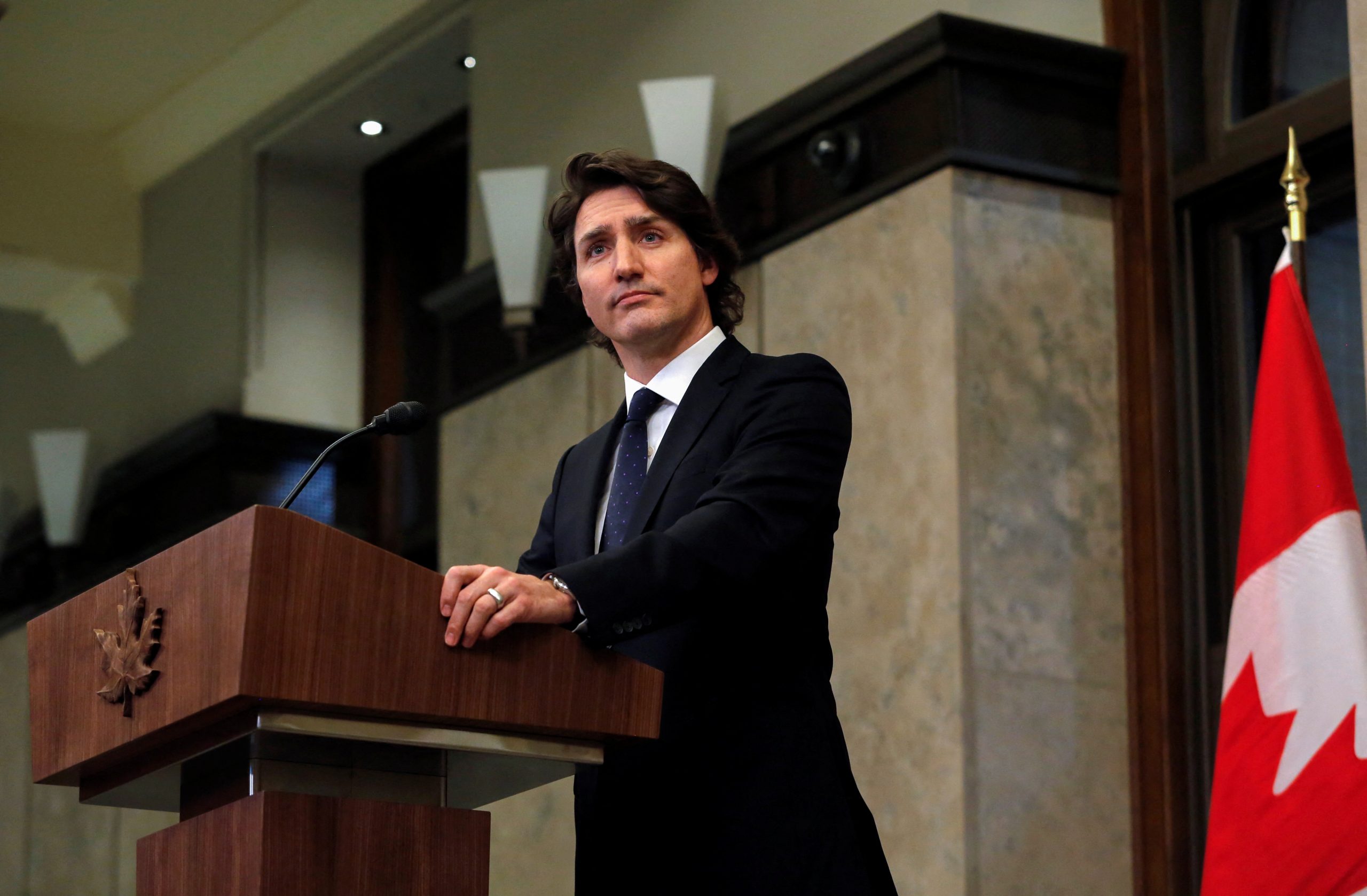
Samuel Case, FISM News
[elfsight_social_share_buttons id=”1″]
Canadian Prime Minister Justine Trudeau announced on Monday that he will be taking historic action to quell the ongoing trucker protests against COVID-19 mandates. Trudeau is invoking Canada’s Emergencies Act, marking the first time the act has been used since replacing the War Measures Act in 1988.
Canadian Prime Minister Justin Trudeau said he will activate rarely used emergency powers in an effort to end protests that have shut some border crossings with the U.S. and paralyzed parts of the Ottawa capital https://t.co/nXy2unWDv7 pic.twitter.com/t7Xs9jZErT
— Reuters (@Reuters) February 14, 2022
The move will grant Trudeau broad powers to end the protests, which have entered their third week in Ottawa. “The scope of these measures will be time-limited, geographically targeted, as well as reasonable and proportionate,” Trudeau said, later clarifying that the military will not be called upon to break-up the protests.
“After discussing with cabinet and caucus, after consultation with premiers from all provinces and territories, the federal government has invoked the Emergencies Act to supplement provincial and territorial capacity to address the blockades and occupations,” Trudeau announced.
The emergency powers will provide police with “more tools to restore order in places where public assemblies constitute illegal and dangerous activities,” including “strengthening their ability to impose fines or imprisonment.” As well as allowing “the government to make sure essential services are rendered, for example, in order to tow vehicles blocking roads.”
“In addition, financial institutions will be authorized or directed to render essential services to help address the situation, including by regulating and prohibiting the use of property to fund or support illegal blockades,” the prime minister added.
As reported by Reuters, Finance Minister Chrystia Freeland explained that these financial measures will “bring crowdfunding platforms under terror-finance oversight, authorize Canadian banks to freeze accounts suspected of funding the blockades and suspend insurance on vehicles in the protests.”
“These changes cover all forms of transactions,” Freeland said. “The illegal blockades have highlighted the fact that crowd-funding platforms and some of the payment service providers they use are not fully captured under the proceeds of the Crime and Terrorist Financing Act.”
Last Wednesday, a Canadian court froze access to $8.5 million in contributions for the protests on the Christina crowd-funding site GiveSendGo. The organization responded at the time saying, “Canada has absolutely ZERO jurisdiction over how we manage our funds here at GiveSendGo.”
Know this! Canada has absolutely ZERO jurisdiction over how we manage our funds here at GiveSendGo. All funds for EVERY campaign on GiveSendGo flow directly to the recipients of those campaigns, not least of which is The Freedom Convoy campaign.
— GiveSendGo (@GiveSendGo) February 11, 2022
“Invoking the Emergencies Act is never the first thing government should do, nor even the second. The Act is to be used sparingly, as a last resort,” Trudeau said in his announcement.
The Emergencies Act defines a national emergency as an event that “seriously endangers the lives, health or safety of Canadians and is of such proportions or nature as to exceed the capacity or authority of a province to deal with it.”
The Canadian Civil Liberties Association condemned Trudeau’s actions in a Twitter thread, saying:
The federal government has not met the threshold necessary to invoke the Emergencies Act. This law creates a high and clear standard for good reason: the Act allows government to bypass ordinary democratic processes.
“Governments regularly deal with difficult situations, and do so using powers granted to them by democratically elected representatives,” the Association added. “Emergency legislation should not be normalized. It threatens our democracy and our civil liberties.”
